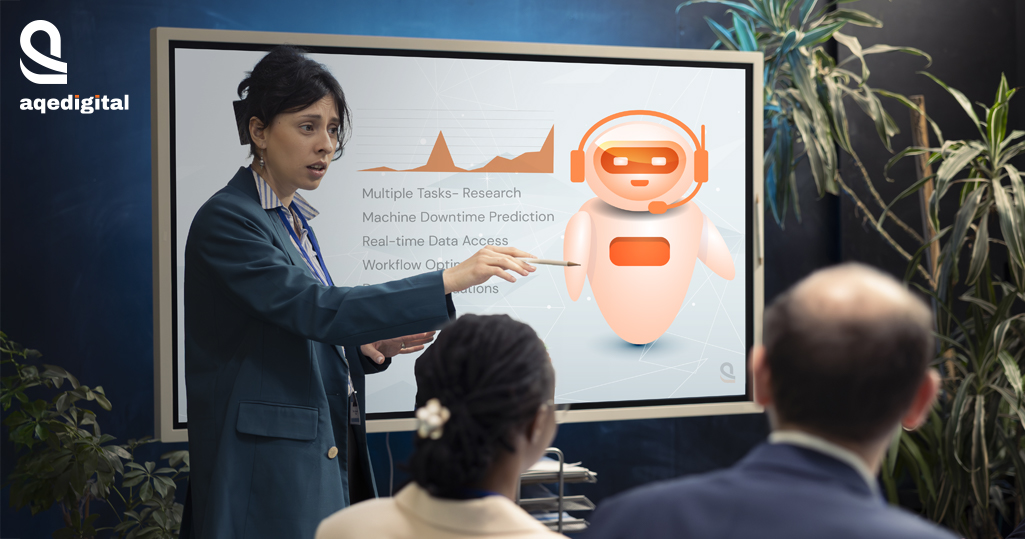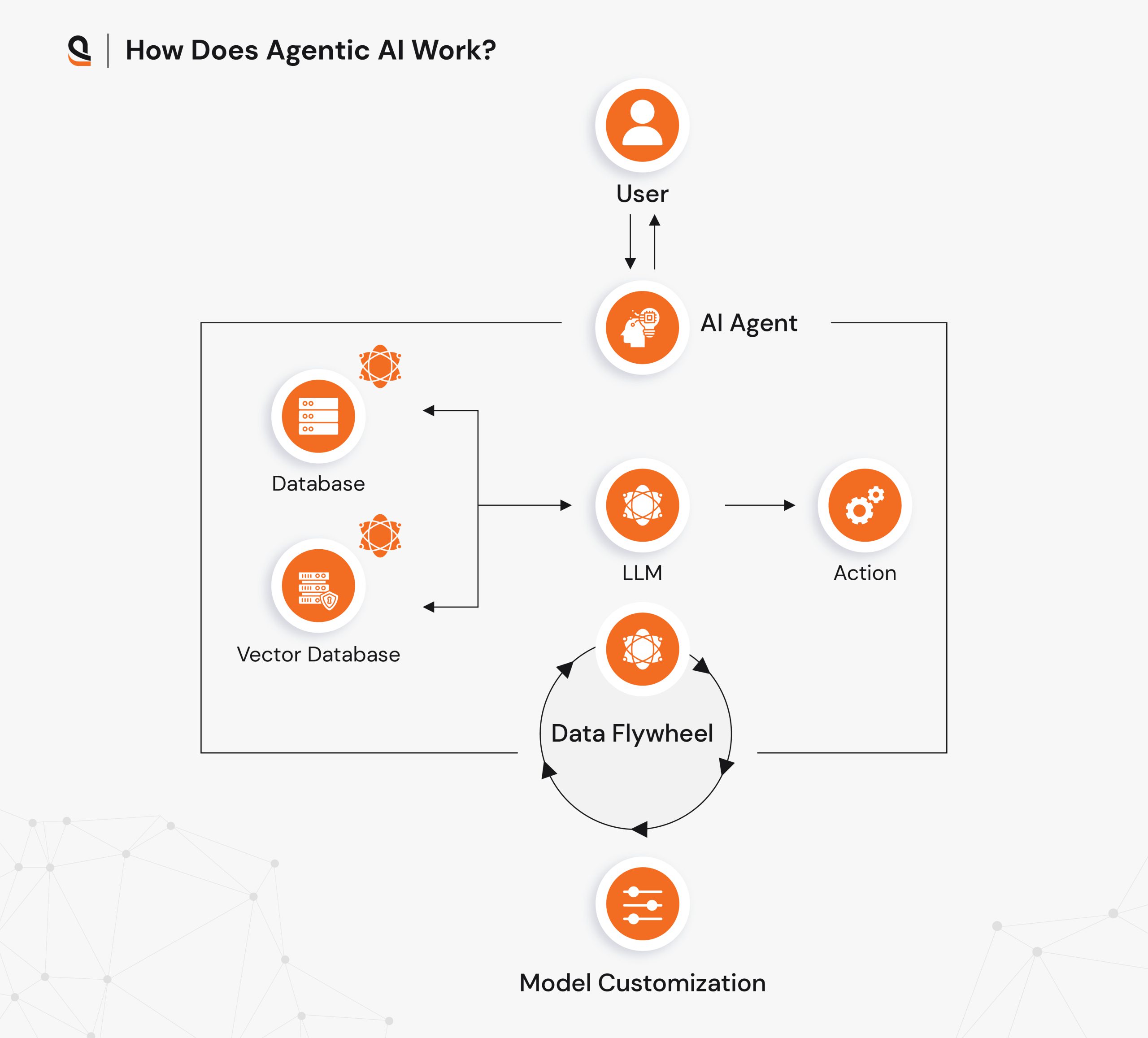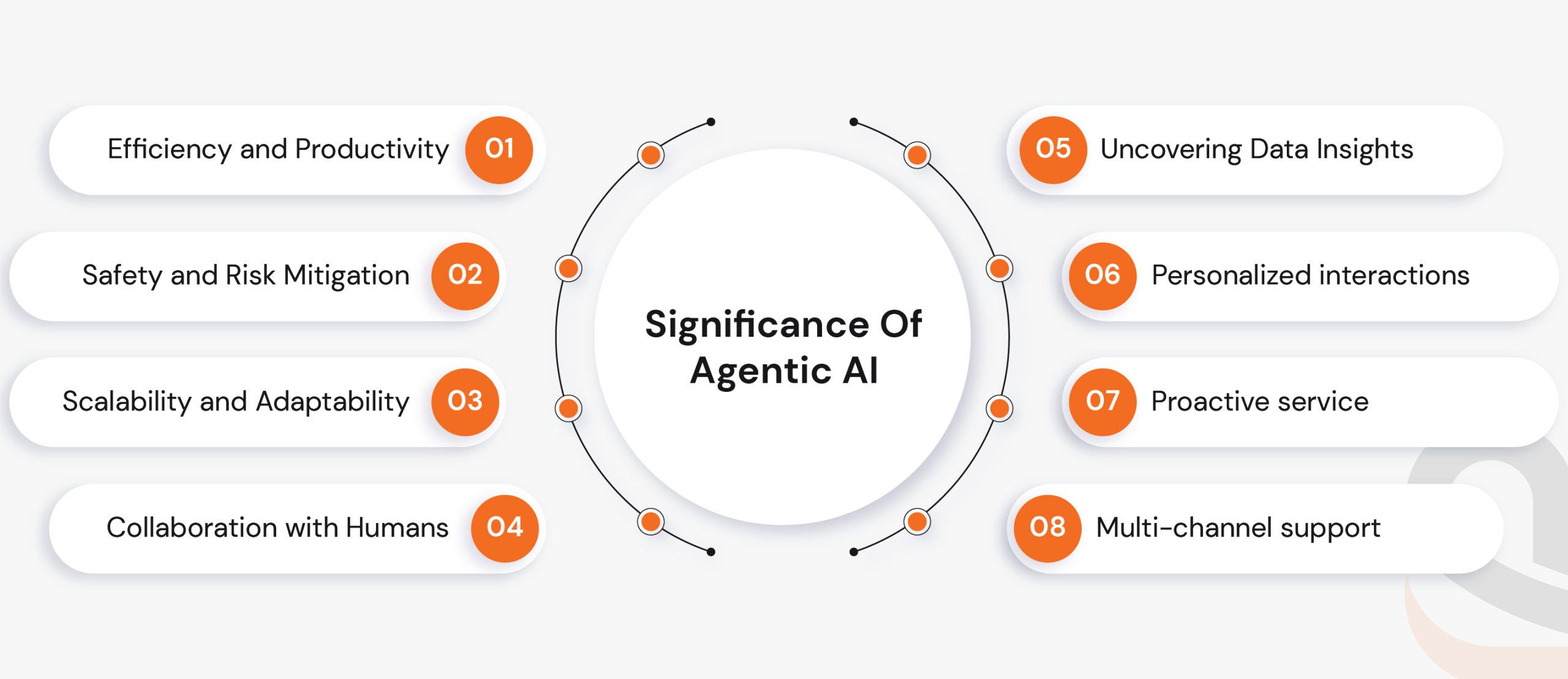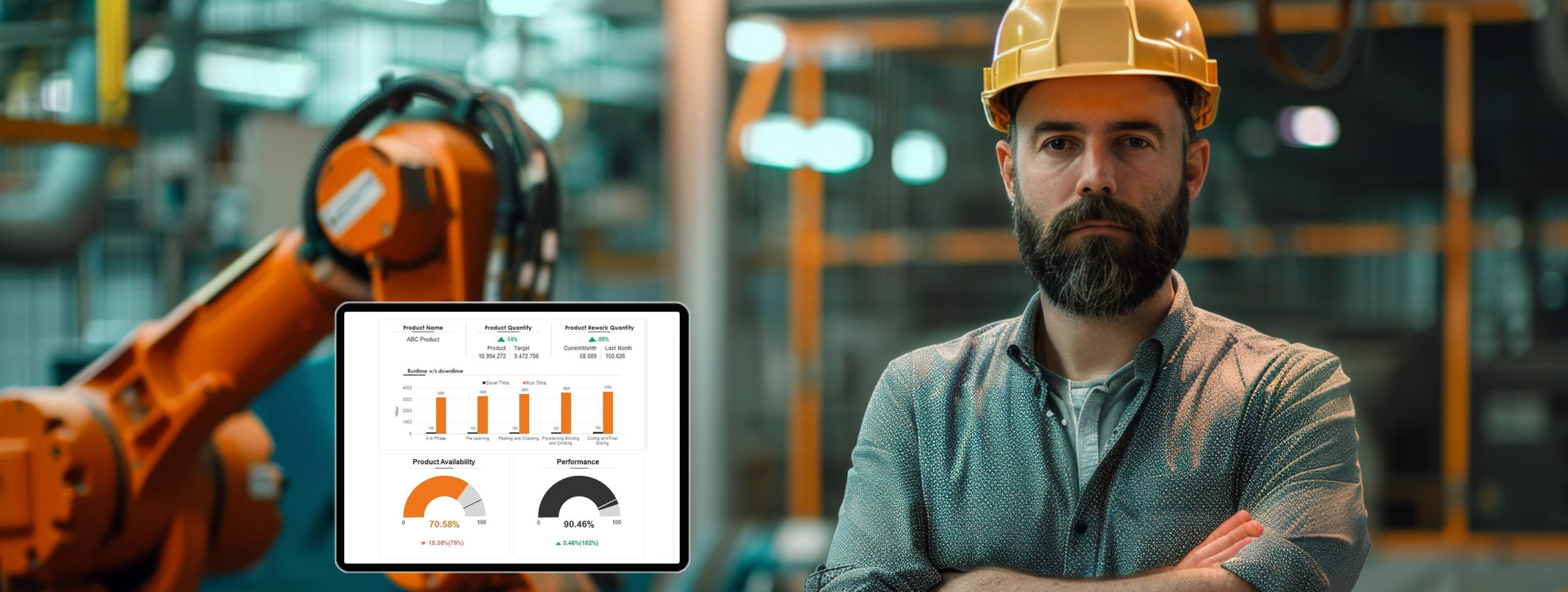ChatGPT and other such generative AI platforms are buzzing around with their capabilities of transforming how users access information, create art, and answer questions. However, despite being able to respond promptly and accurately, these tools have limitations in performing more complex tasks or multiple tasks together.

Autonomous AI agents take generative AI technology to an advanced level by linking thoughts together and conducting multiple tasks in one go without human intervention. Traditional software programs follow predefined rules; however, autonomous AI agents can operate in dynamic environments and respond to complex tasks.
According to Gartner, by 2028, 33% of enterprise software applications will incorporate agentic AI, up from less than 1% in 2024, enabling 15% of day-to-day work decisions to be made autonomously.
AI autonomous agents are capable of operating independently, making decisions, and taking actions with ongoing human guidance. They are designed to operate with a higher level of adaptability that enables them to make more complex decisions by learning with every interaction.
What Are Autonomous AI Agents?
Autonomous AI agents are the latest innovative tech solution branched from Gen AI, influencing the businesses and customer experience significantly with their advanced AI capabilities.
AI-intelligent agents are complex AI systems that can easily grasp and adapt to a dynamic environment. It can perform tasks independently. It can prioritize and accomplish a given task without human intervention or guidance.
The workflow of an autonomous AI agent is based on iterations, and the objective is divided into multiple tasks: research, filtering information, and making a summary. Further, agentic AI systems complete the task and reevaluate on their own what else has to be done and in what order. Once the proper order is set, the AI agent performs the tasks continuously, checking their relevancy. To keep the objective relevant and raw, it ensures that no new tasks appear in the process that could affect the objective.
Why Businesses Must Resort To Autonomous Agent AI?
Autonomous agentic AI can significantly affect the productivity, scalability, and operational efficiency of the organization.
The following are the advantages of Agentic AI:
Efficiency and Productivity
With agentic AI integration, organizations can cut down their expenses by predominantly for repetitive tasks. Agentic AI is capable of operating 24*7, enhancing productivity and enabling uninterrupted operations. AI agents can handle redundant repetitive tasks with accuracy and speed, as humans define strategy accurately, reducing the chances of human error.
Safety and Risk Mitigation
For industries like manufacturing or transportation, AI agents can help minimize human errors, reduce accidents, and improve overall safety by analyzing vast amounts of data from multiple sources and their anomaly detection capabilities. AI agents respond quickly without human intervention to mitigate the risks in critical conditions, ensuring safety.
Scalability and Adaptability
Without proportional increases in resources, autonomous AI agents can be scaled easily across multiple applications. They can quickly adapt to changing conditions, learn from experience, and keep on improving their performance over time, making them ideal and relevant for the evolving needs of businesses.
Collaboration with Humans
Agentic artificial intelligence is a smart collaborator that works hand-in-hand with humans. It enhances human capabilities by providing accurate, actionable insights that support data-driven decision-making and executing tasks that magnify human expertise.
Uncovering Data Insights
No traditional methods and human-led manual data analysis techniques can match the scale at which AI-driven intelligent agents analyze and synthesize information. It helps drive strategic decisions led by data by identifying hidden patterns and delivering actionable insights.
Personalized interactions
Customers want businesses to adhere to their evolving needs and preferences over time. By analyzing customer data, these agents can deliver personalized recommendations and solutions to enhance the customer experience.
Proactive service
Autonomous agents react proactively, which can help prevent problems and demands. Autonomous agents can predict equipment downtime or upcoming events or forecast demand. It can be used as a proactive tool to notify customers about potential issues or send reminders for upcoming appointments.
Multi-channel support
Autonomous AI agents can complete complex tasks efficiently and in real time due to the ability to process a lot of information quickly and accurately. They can handle various tasks simultaneously by adjusting their responses to the changing environment and requirements.
Real-Life Practical Use Case Of Autonomous AI Agents
There are several real-time applications of autonomous AI agents. Let’s have a quick look at how Agentic AI systems can be used in multiple industries:
Solving Data Interoperability With Agentic AI
Data interoperability is one of the challenges that concern the healthcare sector due to the rise of telemedicine and other advanced healthcare technologies.
Agentic AI systems can help develop a nexus of connected systems that helps solve data silos and enable seamless data exchange in real time with adherence to regulatory compliances and security standards.
How It Works:
- Instant data updates and seamless data flow.
- No need for manual updates if new systems or tools roll in.
- Manage surges and prevent breakdowns with AI-powered foresight.
- Continuous learning and automated decision-making.
Optimizing Manufacturing Efficiency with Agentic AI
Manufacturers face growing challenges in optimizing production, reducing downtime, and integrating data from various systems. Disconnected processes, unexpected machine failures, and inefficiencies lead to increased costs and operational bottlenecks.
Agentic artificial intelligence can transform manufacturing by creating an intelligent, autonomous system that continuously monitors and optimizes processes, minimizes disruptions, and enhances overall productivity.
How It Works:
- Integrates machine sensor data, production logs, and ERP systems into a single dashboard.
- AI agents detect inefficiencies and adjust workflows dynamically for maximum efficiency.
- No manual configuration is needed when new equipment, processes, or regulations are introduced.
- Identifies early signs of machine failure and quality deviations to prevent defects and downtime.
- Adjusts production schedules based on material availability, demand fluctuations, and logistics constraints.
- AI agents evolve with data, refining recommendations and improving efficiency over time.
What Role Do Large Language Models (LLMs) Play In Agentic AI?
Large Language Models (LLMs) such as GPT, Llama, and DeepSeek are the integral components of Agentic AI architecture. These platforms enable machines to learn and respond autonomously. Agentic AI models help with applications such as content generation, virtual chatbots, coding, and support systems. It allows businesses to automate and enhance customer interactions, analyze market trends, and plan strategically.
However, deploying Agentic AI has some challenges, including hallucinations (generating false information), biases, and ethical concerns. Solutions such as reinforcement learning with human feedback (RLHF), prompt engineering, and continuous fine-tuning help mitigate these issues. Moreover, businesses must implement ethical AI frameworks and bias-detection tools to ensure fairness and accuracy. By leveraging LLMs effectively, businesses can drive efficiency, automate workflows, and enhance decision-making, leading to smarter, more autonomous business operations.
Building Scalable Agentic AI Solutions for Businesses
Developing scalable Agentic AI solutions requires integrating key components—perception, reasoning, decision-making, and action. Businesses can leverage tools and frameworks like LangChain for AI-powered workflows, HuggingFace for model management, and PyTorch for deep learning, along with cloud platforms such as AWS, Azure, and GCP for seamless deployment. To ensure scalability, organizations should adopt best practices such as modular AI architectures, API-driven integrations, and continuous model monitoring. Enterprises must also prioritize security, compliance, and ethical AI principles when deploying autonomous AI agents. By following these strategies, businesses can harness Agentic AI to optimize operations, enhance productivity, and drive innovation at scale
Why Choose AQe Digital for Agentic AI & Data Analytics Solutions?
- Domain Expertise: Our team specializes in developing and integrating autonomous AI systems seamlessly across industries and systems.
- AI-Driven Data Analytics: To automate workflows, drive data-driven decision-making, and extract predictive insights, we integrate AI with data analytics.
- End-to-End Solutions: From AI model development to implementation and continuous optimization, we offer full-scale solutions and services tailored to unique industry needs.
- Industry-Specific: At AQe Digital, we deliver industry-specific AI-tailored solutions to meet unique goals, requirements, and challenges.
- Security & Compliance Assurance: Our team prioritizes security and compliance by following stringent data security protocols and global standards.
How Does AQe Digital Help Overcome Challenges in AI Adoption?
- Support and Training: We provide comprehensive training and support to the teams to make them adopt AI integrations.
- Seamless Integration: Our solutions effortlessly integrate with existing IT infrastructure and systems with minimal to zero disruption.
- Addressing Data Challenges: We ensure high-quality, structured, and usable data for AI models by implementing advanced data pre-processing and governance frameworks.
- Scalability: We offer cost-effective AI solutions with modular scalability, facilitating our clients to evolve and expand effortlessly.
- Building Trust & Compliance: We prioritize ethical AI development, ensuring compliance with global AI regulations and transparency.
Future Of Agentic AI Businesses
Autonomous agents, if integrated with AI, may lead to fully automatic AI operating systems in the future. These systems support more adaptable systems that are aligned with business goals, compliance, requirements, and human values.
Autonomous AI agents are capable of managing multiple tasks and can surely influence all industries. From business workflow to decision-making, autonomous AI agents are transforming businesses.
Conclusion
Autonomous AI agents will continue to evolve and revolutionize businesses, taking operational efficiency and productivity to the next level. Beyond automation, Agentic AI is transforming customer experiences by delivering hyper-personalized interactions through AI-driven insights. Businesses can leverage AI to provide 24/7 customer support with autonomous virtual agents, ensuring instant responses and seamless issue resolution.
At AQe Digital, we help enterprises drive growth and innovation with AI solutions tailored to their unique business needs, ensuring customer-centric and scalable AI adoption. Contact us now to get answers to all your AI-related queries and discover how Agentic AI can reshape your business for success.



